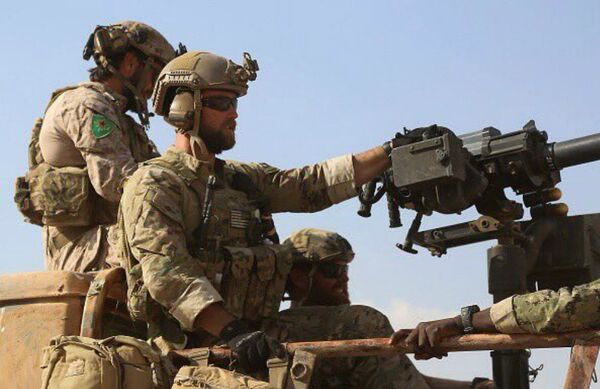Local media reported that Kurdish People's Protection Unit (YPG) positions were hit numerous times during the attack, while Daesh sites close to Turkey's border with Syria were also struck in the offensive.
While Turkey's aim, according to Foreign Minister Mevlut Cavusoglu, is to ensure that Daesh is "completely cleansed" from areas close to its border in northern Syria, many have questioned Turkey's continued bombing of Kurdish targets — particularly given that the Kurds are actively cooperating with Turkish allies such as the US.
Ploy to Reduce Kurdish Influence?
The recent Turkish airstrikes targeted the Daesh-held northern Syrian border town of Jarablus, with a land offensive of Turkish-backed Syrian rebels expected to follow.
Some have suggested that the decision to strike the YPG, which Turkey says are linked to the banned militia group the PKK, is part of a plan to deter Kurdish forces from capitalizing on any attempt to destroy Daesh in northern Syria.
Given likely presence of US British French Special Forces one would assume #Turkey informed coalition before striking #YPG in Manbij.If not?
— Amberin Zaman (@amberinzaman) August 22, 2016
While Kurdish forces currently hold large swathes of land in Syria's northeast, Turkish officials have reportedly said that the presence of Kurdish military and administrative divisions in northern Syria is a "red-line" issue, and that they would prefer Free Syrian Army (FSA) rebel groups to take control of those areas once they are liberated from Daesh.
Turkey is currently fighting a Kurdish insurgency in the country's southeast, with Ankara concerned that a strong Kurdish presence could lead to greater calls for Kurdish autonomy.
Complicated Alliances
As the fight against Daesh continues, the latest aerial offensive has once again highlighted the hugely complicated situation in Syria.
While under fire from Ankara, Kurdish groups such as the YPG have been strongly backed by the US-led international coalition throughout the conflict, and have been credited with being one of the most effective groups in the fight against Daesh.
Some critics of Turkey fear that attacking the Kurds could inhibit the fight against jihadist groups, with concerns that damaging both Daesh and the Kurds could lead to a dangerous power vacuum in northern Syria.




